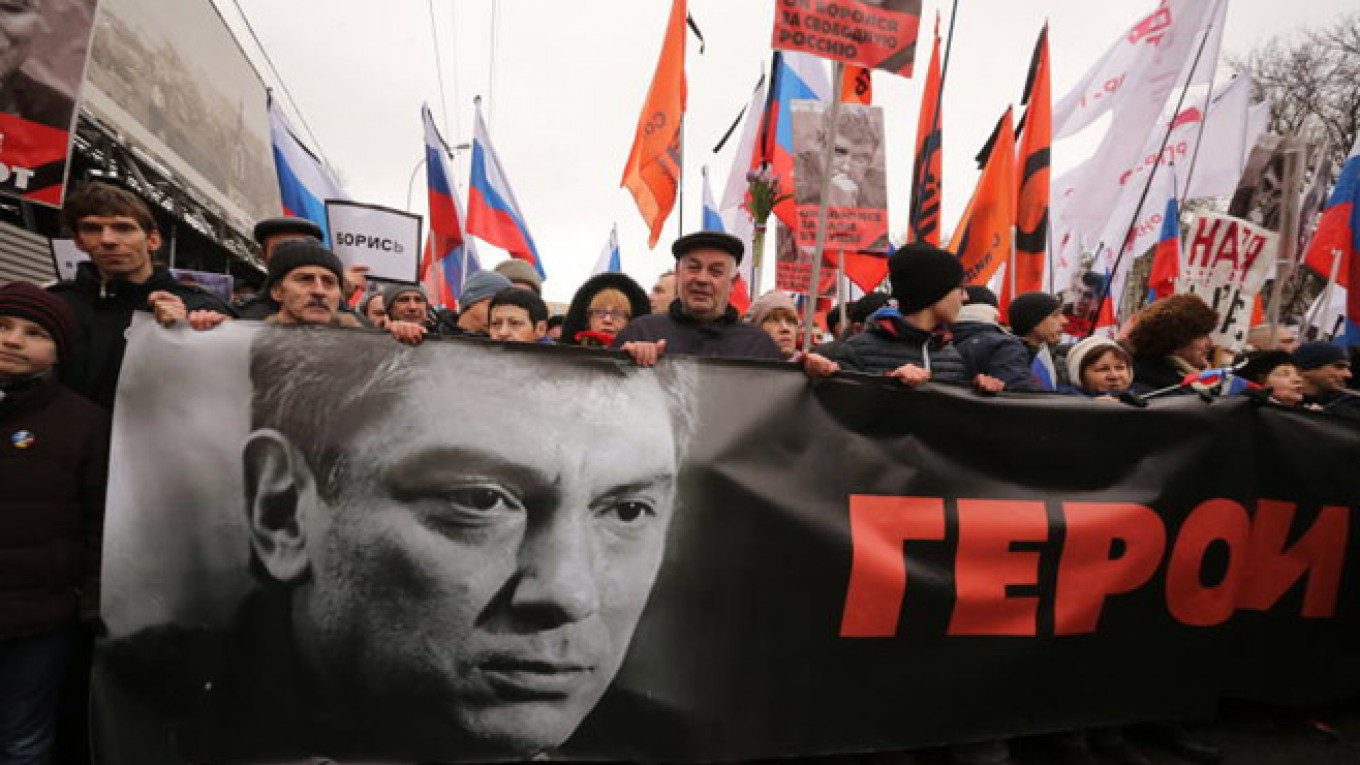In politics, as in sport, there is sometimes higher justice without "local" justice. An athlete can become a legend but fail to win the Olympic gold due to a chance accident. In the same way, a politician can outclass his competitors intellectually and morally and yet lose the presidency to someone with less experience and a narrower outlook.
Boris Nemtsov outclassed his political rivals in almost all respects. Which leader or senior official in the last 10 years could compare with him intellectually, match his ability to discuss even the minute details of an issue while also grasping the "big picture" or speak so elegantly in Russian and so fluently in English?
Such talents have been lacking in the Russian leadership. In democratic politics, at the local and regional level it is necessary to find a common language with the average voter, businessman or official, and intellect is not always an asset.
But Nemtsov excelled at finding a common language with voters. He was a popular governor of the Nizhny Novgorod region during the most difficult crisis years in the 1990s and received tens of thousands of votes when he ran in mayoral elections in Sochi and local elections in Yaroslavl.
Nemtsov personified honesty in politics. In recent years the authorities were more bent on digging up dirt on Nemtsov than on anyone else. And despite all of their efforts, they failed to discredit President Vladimir Putin's most relentless and outspoken opponent.
Many government officials enriched themselves in the 1990s, but not Nemtsov, who spent half of those years in the highest echelons of power. Nemtsov was also one of the most morally consistent politicians. He spoke out against the Chechen War in the 1990s and disregarded opinion polls to oppose the war in Ukraine in 2014.
Nemtsov demonstrated incredible strength of character by restarting his political career from scratch in the mid-2000s. The vast majority of political figures of the 1990s left politics long ago, while Nemtsov devoted himself to improving conditions for his fellow citizens, working at the grassroots — the most important level.
And if that were not enough, Nemtsov was tall, in good physical shape and full of personal charm.
He was an ideal candidate for president. But the fact that he excelled his rivals in every way was not enough for him to win that post because in politics, as in any activity in which circumstance and chance play a major role, there is no justice.
However, this does not eliminate the hope for higher justice. Of all the politicians of the past 25 post-Soviet years, Nemtsov will be remembered as much as, and perhaps more than any other.
Few people other than professional historians recall the names of the various general secretaries who served while Andrei Sakharov lived under forced internal exile in the 1980s. In fact, most people cannot recall the name of a single senior official from that time.
And yet, the name of Sakharov, whom it seemed had accomplished very little in politics, remains. Like him, Nemtsov has a chance to be remembered for all time.
Konstantin Sonin, a columnist for Vedomosti, is professor of economics at the Higher School of Economics in Moscow.
A Message from The Moscow Times:
Dear readers,
We are facing unprecedented challenges. Russia's Prosecutor General's Office has designated The Moscow Times as an "undesirable" organization, criminalizing our work and putting our staff at risk of prosecution. This follows our earlier unjust labeling as a "foreign agent."
These actions are direct attempts to silence independent journalism in Russia. The authorities claim our work "discredits the decisions of the Russian leadership." We see things differently: we strive to provide accurate, unbiased reporting on Russia.
We, the journalists of The Moscow Times, refuse to be silenced. But to continue our work, we need your help.
Your support, no matter how small, makes a world of difference. If you can, please support us monthly starting from just $2. It's quick to set up, and every contribution makes a significant impact.
By supporting The Moscow Times, you're defending open, independent journalism in the face of repression. Thank you for standing with us.
Remind me later.






